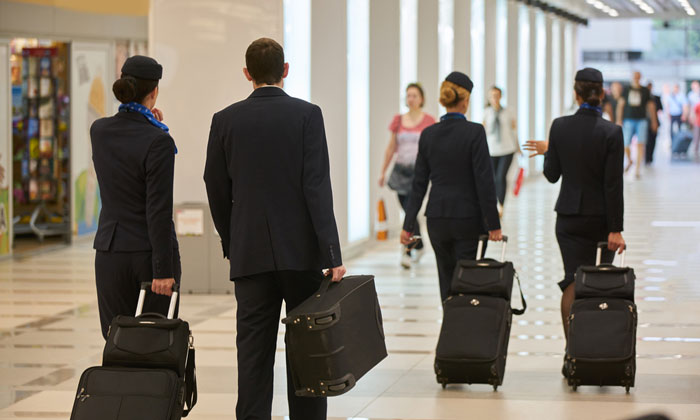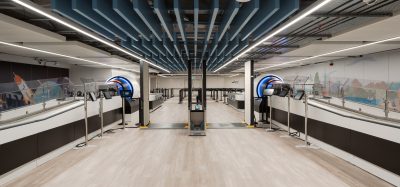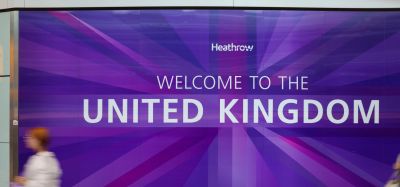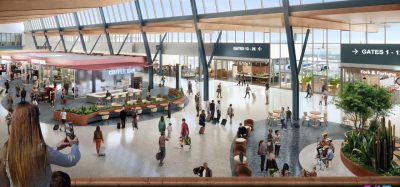How airlines can grow by effective cabin crew incentivisation
- Like
- Digg
- Del
- Tumblr
- VKontakte
- Buffer
- Love This
- Odnoklassniki
- Meneame
- Blogger
- Amazon
- Yahoo Mail
- Gmail
- AOL
- Newsvine
- HackerNews
- Evernote
- MySpace
- Mail.ru
- Viadeo
- Line
- Comments
- Yummly
- SMS
- Viber
- Telegram
- Subscribe
- Skype
- Facebook Messenger
- Kakao
- LiveJournal
- Yammer
- Edgar
- Fintel
- Mix
- Instapaper
- Copy Link
Posted: 5 February 2018 | Simon Pont | CEO | ECR Retail Systems | No comments yet
Cabin crew are the key contact point between the customer and the airline, managing the face-to-face interactions that can make or break a business’ reputation. But as the passenger begins to expect more from their journey, how can airlines help their staff meet these demands? Simon Pont, CEO of ECR Retail Systems, explains more.


PREPARE FOR TAKE OFF: The industry is drifting away from the no-frills , a-to-b experience, and towards something more comprehensive
The topic of airlines incentivising staff to sell more to customers has hit the headlines recently, with reports of cabin crew being told that they could face “disciplinary proceedings” and have their working hours changed unless they sell more products, such as perfume and scratch cards, leading to much dismay among airline employees. A recent article in The Guardian highlighted what it deemed the wrong and right ways for airlines to incentivise staff. The allegation, strongly denied by the airline, warned of consequences for those whose sales per flight fall below set levels.
While selling products to passengers is undoubtedly a vital part of airline revenues, cabin crew, under threat of losing their jobs, if they don’t sell more, are more likely to leave, leading to the airline needing to invest in staff recruitment and training. In addition, dissatisfied employees are likely to show their unhappiness in other ways, which could well impact the customer experience and damage the airline’s brand.
Growing ancillary revenue by selling products, such as food and drink, perfumes, destination ticketing services, plus much more, is a sound strategy. However, there are some effective ways of incentivising staff. Demonstrating to crews that value is being added to their role through their interaction with passengers leaves them more likely to perform better.
Changing models of passenger service
In recent years, many airlines have moved from issuing everything from food, drink, sweets and other products gratis, which requires less effort from the crew, to a sales model, where passengers are charged for these items, and crews need to promote them. Moving to this approach means not only becoming more accountable on all levels (stock, cash, wastage, sales) but also managing passengers who may easily become irate if they have been accustomed to receiving products and services for free. Disappointment will follow if they find what is on offer is priced too highly or if there is insufficient choice and availability. Passengers now expect far more from their airlines, and customer loyalty should not be taken for granted.
Airlines face growth challenges, some of which are outlined by PWC in its report: 2017 Commercial Aviation Trends, including fluctuation in oil prices and a predicted decline in the growth of global traffic. Growing ancillary revenue by selling, for example, products, such as food, drink, perfumes, destination ticketing services is a sound counter-strategy, and is important to passengers. The goal should be to improve the loyalty of both cabin crew and passengers through correct incentivisation and making the crew feel valued.
Changing role of cabin crew
The role of the cabin crew is evolving. Traditionally, crew are viewed as safety guardians and, also as providers of those little extras – including good food and drink – that make air travel not only bearable, but even pleasurable. With the entry of low-cost budget airlines, passengers decided it was worth sacrificing the added extras, particularly on short-haul flights, to achieve rock-bottom prices.
Airlines need to embrace new technology to enable this evolving interaction between passengers and crew.
Sometimes, however, crews risk being seen as high-pressure salespeople, and this may not always improve the satisfaction of either staff or passengers. Recently, however, there has been a trend in the airline industry away from the no-frills-low-expectations experience and back to the days of trusted brands and a quality customer journey. The recent, well-publicised incidents surrounding the treatment of passengers by some airlines will take a long time to fade from customer memories and has surely had an impact on the attitude of other airlines to their passengers. The need for more brand definition and competition in the industry is propelling carriers to offer optional, paid-for upgraded services to customers, and in emerging markets, where passengers are becoming increasingly sophisticated and demanding, this is very prominent.
Incentivising crew correctly
There are ways of incentivising cabin crew that doesn’t involve heavy handed pressure tactics. Business change consultants may be required to advise on culture and process, but a carrot approach normally works far better than the stick. Crews that feel value is being added to their role through a positive interaction with passengers are likely to perform better. This includes making it quick and easy for passengers to sign up to what’s on offer, as well as suggesting to them a range of enjoyable and unique products and services – for example, destination ticketing – rather than a standard predictable product range. Having exciting goodies available to offer will encourage crews to deliver an even better customer experience.
The role of technology
Airlines need to embrace new technology to enable this evolving interaction between passengers and crew. The good news is that it is already available, with data capture and personalisation at the core. Airlines should be working towards a scenario when every client is recognised through their preferences and purchasing habits. An airline’s strategy to improve customer experience should be to build an end-to-end system that begins with reinforcing its position as a trusted carrier and industry leader.
Passengers now expect far more from their airlines, and customer loyalty should not be taken for granted.
It should be able to interface with all aspects of the passenger journey, supporting loyalty, and capitalising on the trend towards offering a better experience, where passengers feel valued. To enable this, an innovative electronic point-of-sale (EPOS) system is essential. Today, the latest POS systems deliver to crews the information they need to prompt customers that a new range of items relevant to them are now available, with any associated cost savings. Instantly, passengers feel that they are valued customers, and that crews have taken the time to consider their needs. They are therefore inclined to increase spend and the number of transactions.
At the other end of the spectrum, survey reports detail accounts of passenger disappointment during flights when the trolley service has not reached them, when advertised products are not available, there are long waiting times to pay and cash only payments are obligatory as the airline won’t take payment cards. The right point of sale strategy will overcome these issues, delivering precise stock data alongside the tools with which to correctly predict stock and sales, by route, time of day and even position. The latest payment technology can also guarantee the fastest possible transaction processing times, and reliability both offline and online, speeding up the entire process and allowing crews to move on quickly and outperform what has previously been possible.
Win-win
Airlines that take the carrot rather than the stick approach, and use the latest technologies are those that are most likely to succeed through more motivated staff and more loyal customers in a highly competitive marketplace. Airlines can support cabin crew in building incentives, boosting revenue, aiding promotions and upselling. This can be managed entirely through the back office, meaning that the process can be quickly and simply tailored to reflect real-time operational changes. The goal should be to improve loyalty of both cabin crew and passengers through the most effective payment incentivisation scheme. Giving the cabin crew the right technology tools will help them feel valued – in short, a win-win for the airline, the crew and passengers.


Founded in 1973, ECR Retail Systems is one of the longest established EPoS providers in the world. For over four decades, ECR has been developing and deploying systems in some of the world’s most challenging environments and locations, across five continents.
In 2017, Simon and his team launched the ECRGo2, the industry’s first fully-certified, all-in-one contactless, handheld mobile point of sale (MPoS) device for the airline industry.
ECR website is at www.ecr.co.uk
Related topics
Aeronautical revenue, Aircraft, Passenger experience and seamless travel, Retail


















